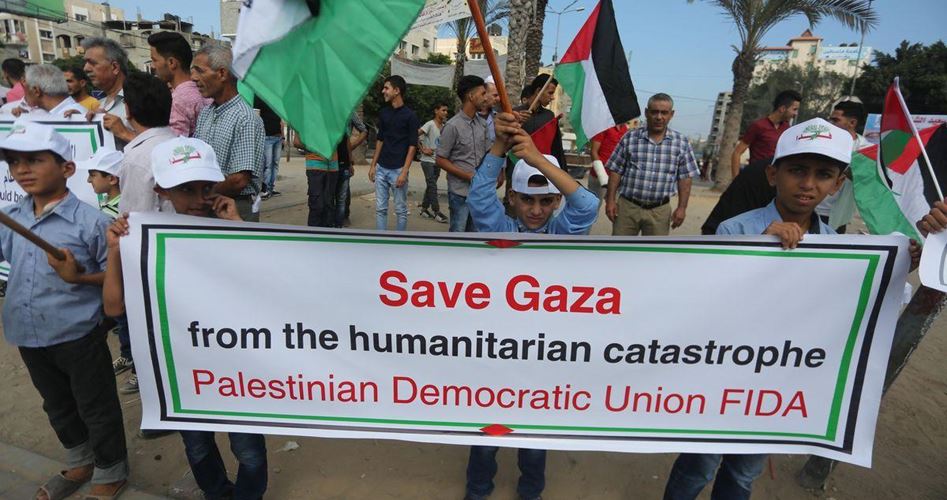The UN is complicit in the fragmentation of Palestine

The UN must surely, once and for all, hold itself accountable for its role in facilitating Israel’s colonization and the resulting swift deterioration of Palestinian rights. Speaking about how the Palestinian Authority’s financial crisis has triggered unprecedented challenges is the excuse for another diversion to justify the UN’s involvement, again at the expense of the Palestinian people
In his latest report for the Ad Hoc Liaison Committee, the UN Special Coordinator for the Middle East Peace Process, Nickolay Mladenov, pointed out the consequences of the financial crisis, stating that its impact “will take years to undo”. Even so, the UN’s humanitarian endeavors in Gaza and the occupied West Bank remain focused on short-term alleviation of poverty. Temporary jobs, doubling Gaza’s electricity supply and providing emergency supplies all point towards the fact that the UN is not concerned with the colonization process per se, and is exerting its efforts to frame Palestinian deprivation as a humanitarian predicament rather than the predictable result of Israel’s colonial occupation. The latter is in line with the UN’s brief and unsustainable bouts of action, most of which rely on existing inadequate policies and agreements.
External discussions about Palestine are not achieving anything for the Palestinians. For the short-term response to humanitarian needs, there is a funding deficit. As vulnerable Palestinians face additional hardships, the humanitarian response keeps encountering financial difficulties. The UN imposed an international agenda upon Palestinians when it adopted the Partition Plan in 1947 and now the people are subjected to decision-making by the World Bank, the European Union and UN organisations, alongside Israel and the Palestinian Authority.
The solution insisted upon in the report’s conclusion is an adherence to the Paris Protocol, which outlines the PA’s economic and financial subjugation to Israel. Although the agreement was to be applied for a five year interim period, no alternatives have been provided, thus facilitating the international community’s complicity in managing Palestinian affairs according to Israel’s needs.
The UN knows that the Paris Protocol subjugates the PA and the Palestinian population to Israeli demands. Israel’s success at fragmenting the Palestinian cause into isolated, lost battles has partly been possible due to the cooperation it has found from entities supposedly working to protect Palestinian rights.
There is nothing notable about the international community calling upon Israel to uphold the Paris Protocol. Since 1994, Israel has perfected its restrictive agenda while expanding further into Palestinian territory. Tentative attempts by the PA to revise the Protocol have yet to yield any decisions on the suggestion, let alone formulate alternatives. Even so, addressing the subjugation inherent in the economic agreement is just a sliver of the wider system in which the PA, alongside the international community, is also a participant.
So far, both the PA and the international community keep veering towards collaboration. The UN’s report emphasizes Israel’s supposedly “legitimate security concerns” when recommending that Israel and the PA “recommit” to the Protocol. PA President Mahmoud Abbas has refused to halt security coordination completely, which means that any step to counter Israel is still overshadowed by other agreements prioritizing the settler-colonial state.
While the financial deficit is troubling for the PA, it must not be forgotten that the leadership itself has facilitated and normalized many forms of violations against Palestinians. In this, the PA is at one with the UN, which has proved, time and again, that it will safeguard the political actors at the expense of the Palestinian people and their legitimate rights.
- Ramona Wadi is an independent researcher, freelance journalist, book reviewer and blogger. Her writing covers a range of themes in relation to Palestine, Chile and Latin America. Her article appeared in MEMO - Middle East Monitor-.

WRITE YOUR COMMENT